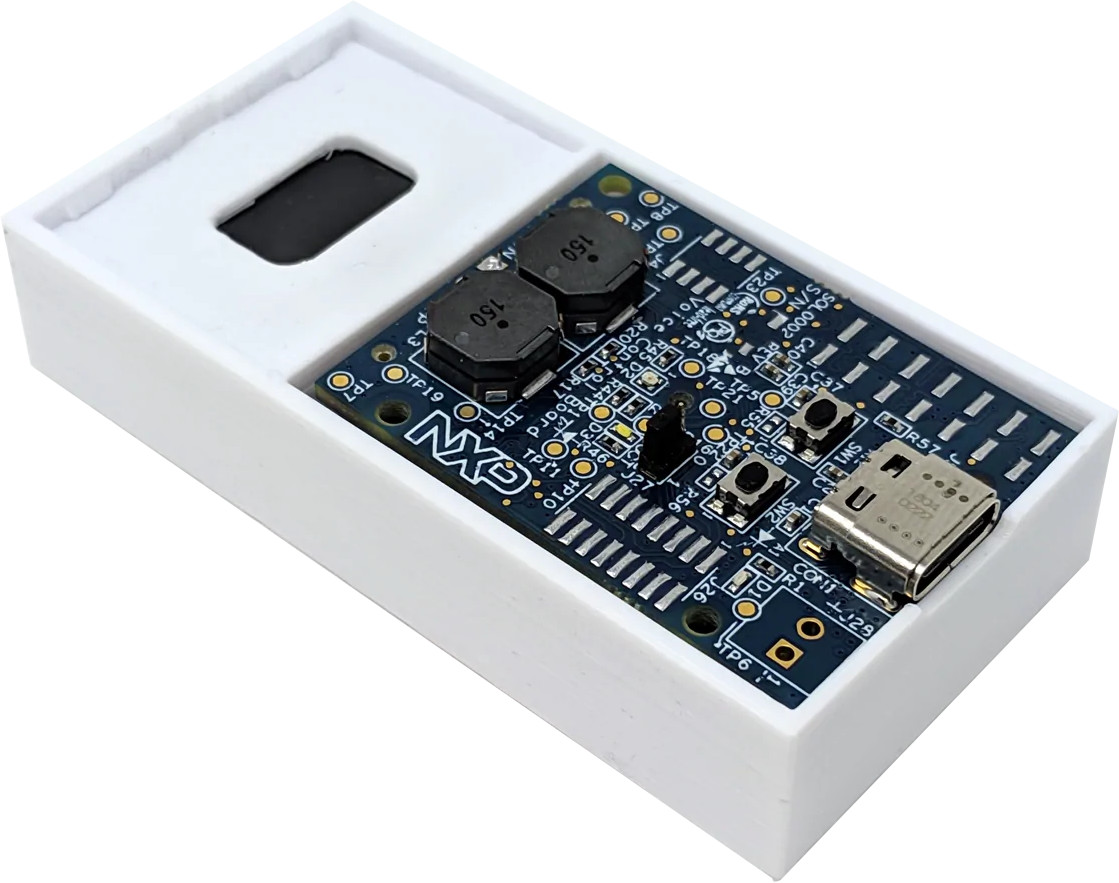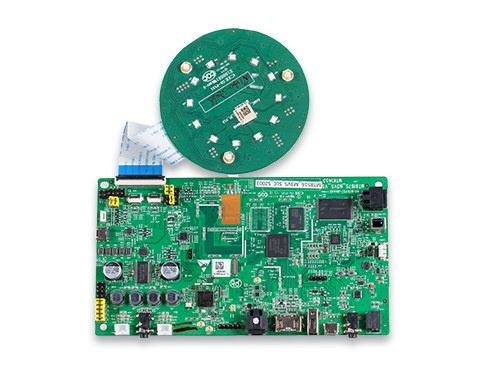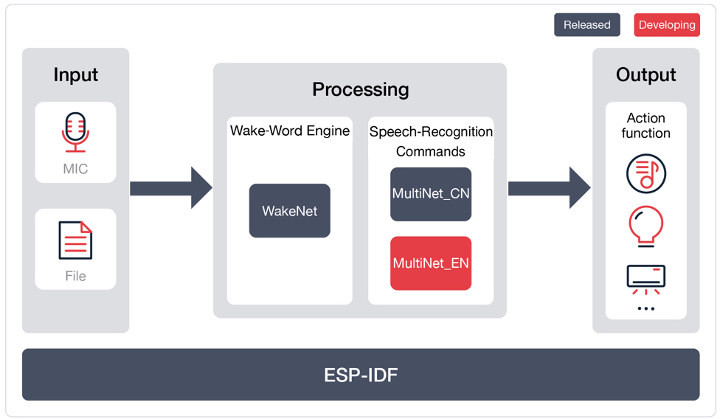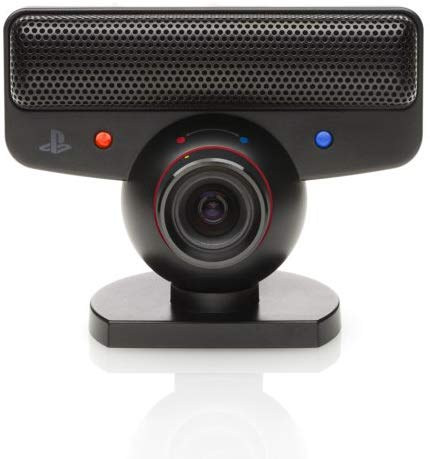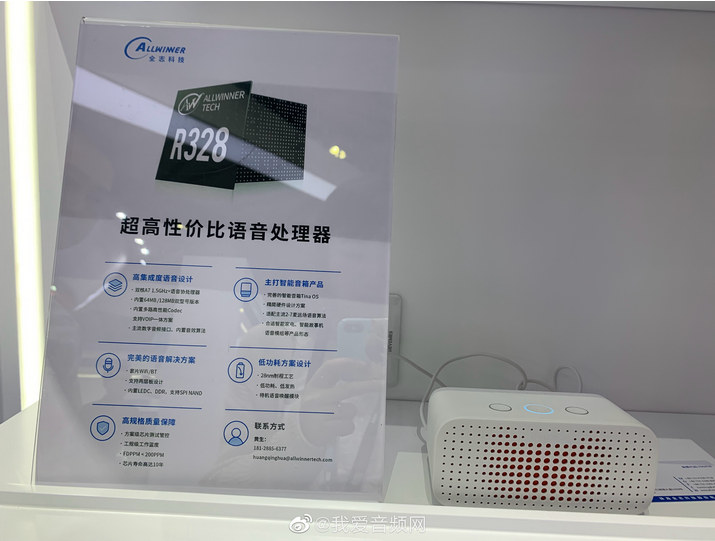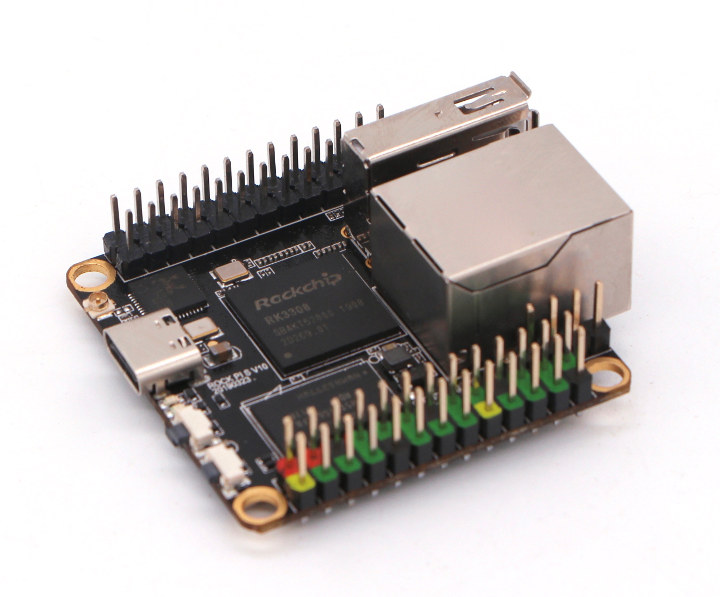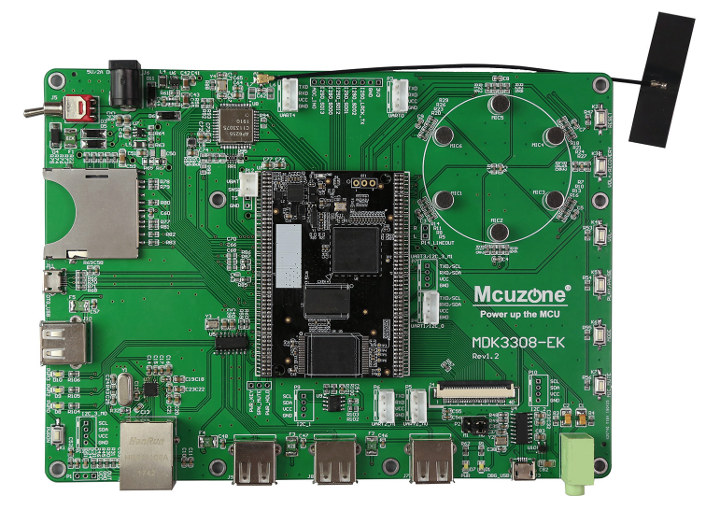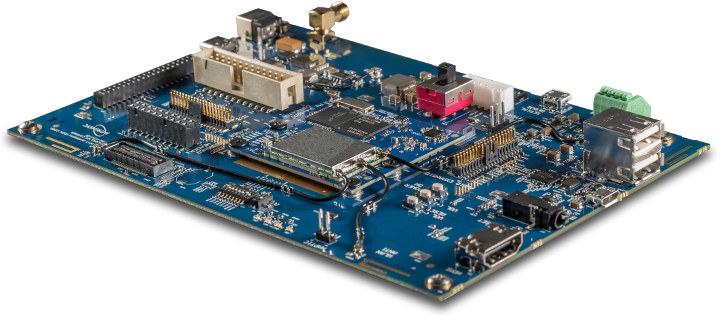NXP i.MX RT crossover processors combine real-time capabilities of microcontrollers with the performance of application processors thanks to an Arm Cortex-M7 core clocked at 528 MHz and more. The performance is indeed impressive as shown by Teensy 4.0 benchmarks, but so far NXP i.MX RT processor targeted general purpose applications. The company has now introduced three new crossover processors designed for AI applications. NXP i.MX RT106F is designed for offline face recognition and expression Identification, while RT106L and RT106A are made for local and cloud-based embedded voice applications. NXP i.MX RT106F Processor Highlights of the processor: CPU – Arm Cortex-M7 @ 600 MHz (3020 CoreMark/1284 DMIPS) Memory – 1 MB On-Chip SRAM plus up to 512 KB configurable as Tightly Coupled Memory (TCM) External memory interface options – NAND, eMMC, QuadSPI NOR Flash, and Parallel NOR Flash Real-time, low-latency response as low as 20 ns Industry’s lowest dynamic power with […]
MediaTek MT8516 2-Mic Development Kit is Designed for Alexa Voice Service (AVS)
MediaTek has just announced the MT8516 2-mic development kit for Alexa Voice Service (AVS) that aims to help developers build voice-assistant products faster, at reduced costs, and with advanced features such as multi-room music (MRM). The kit is based on MT8516 quad-core ARM Cortex-A35 application processor, which integrates audio front-end and post-processing technologies, as well as Wi-Fi and Bluetooth connectivity. MediaTek MT8516 2-mic development kit specifications: SoC – MediaTek MT8516 quad core Cortex-A35 processor @ 1.3 GHz System Memory I/F – LPDDR2, DDR3, LPDDR3, DDR3L Video Output – HDMI 1.4 with ARC Audio 2x DMIC Amazon Alexa support MediaTek PowerAQ Multi-Room Audio 2x 4-channel I2S S/PDIF TDM in/out up to 8 channels 2-channel PDM inputs 2-channel audio DAC and DAC Connectivity – Fast Ethernet, WiFi 4, Bluetooth 4.2 LE USB – 1x micro USB 2.0 OTG port MediaTek MT8516 supports the following technology components, although note that a license […]
Espressif ESP-Skainet Voice Assistant Offers Wake Word Engine and Speech Commands Recognition for Embedded MCUs
Skynet is finally here! OK, not quite, but at least we do have ESP-Skainet now courtesy of Espressif Systems. ESP-Skainet is an intelligent voice assistant that features the company’s WakeNet wake word engine and MultiNet speech commands recognition. WakeNet WakeNet has been specifically designed for low-power MCUs such as ESP8266 or ESP32 with a low memory footprint (20KB RAM) and a high calculation speed that makes it capable of achieving a high success rate for wake word detection even in noisy environments. Tested in the company’s upcoming LyraT-Mini audio board that combines an ESP32-WROVER-B module and a codec, WakeNet achieves a 97% wake word success rate at a one-meter distance, and 95% three meters away in a quiet environment. ESP-Skainet wake-up engine ships with the wake-up word “嗨乐鑫” (Hi Lexin), which translates in “Hello Espressif”, and supports up to five wake words. You can use customize wake words as well, […]
Using Sony PS3 Eye Camera as an Inexpensive Microphone Array
Almost exactly two years ago to the day, we published an article showing how microphone arrays performed against a single USB microphone, and the latter started to have a poor wake word detection success rate at around 3 meters array even in a silent room, and it got worse with white noise or background music, while the microphone arrays would pick up the wake word with a much higher success rate in all conditions. The price of smart audio development kits varies a lot from $500 for Intel Speech Enabling Developer Kit to $129 for an Allwinner R18-based 3-Mic Far-Field Amazon AVS Development Kit, and $99 for ReSpeaker Core v2. If you’ve already got a Raspberry Pi 3/4 board, you can get cheaper options such as ReSpeaker 4-Mic Array for $25, but nothing beats the price of Sony PS3 Eye camera that comes with a 4 microphone array and sells […]
Allwinner R328 Smart Speaker & System-on-Module Spotted in China
Earlier this year, Allwinner introduced some AIoT (AI + IoT) processors including Allwinner R328 dual-core Cortex-A7 processor for “low-cost voice interaction solutions” aka low-cost smart speakers. I did not pay too much attention at the processor at the time, but since then, the company has released a product brief with some more details about the processor. We can see it integrates 64MB to 128MB DDR3 memory which should be enough to run Linux without external memory, and truly provide a low-cost solution for smart speakers, and I was told the chip may cost around $3. I was also asked whether Allwinner R328 smart speakers were already shipping. A Google search in English did not help, so I had to switch to Chinese, and after visiting several sites, I could see some Allwinner A328 platforms including a smart speaker and a system-on-module were showcased at some event in China. We’ve got […]
$9.9 ROCK Pi S is a Tiny SBC Powered by Rockchip RK3308 Processor
Radxa launched their low cost ($40) Rock Pi 4 SBC powered by Rockchip RK3399 processor a little over 18 months ago. If you are subscribed to their mailing list, the company has now sent an email entitled “ROCK Pi Summer Updates 2019” (no link available) that reports about v1.4 of the board with 4MB SPI flash onboard, an external WiFi antenna connector, and various other small changes, as well as the announcement of RockPi PoE HAT to power the board from an Ethernet cable, and an USB 3.0 eMMC card reader. But what particularly caught my attention in the email was a new tiny single board computer powered by Rockchip RK3308 Cortex-A35 processor: Rock Pi S selling for as low as $9.9 with 256MB RAM, and targetting headless IoT & smart voice applications. Rock Pi S board specifications: SoC – Rockchip RK3308 quad-core Arm Cortex-A35 processor with built-in VAD (Voice […]
Mcuzone RK3308 SoM and MDK3308-EK Evaluation Kit are Designed for Smart Voice Applications
Rockchip RK3308 is a quad-core Cortex-A35 processor that was announced in 2018 together with RK3326 specifically for Smart AI solutions. While the processor is equipped with an RGB LCD output interface, it does not come with a 2D or 3D graphics accelerator, so it’s better suited to smart speakers with an optional display using a basic user interface. I’ve not seen many hardware platforms or boards based on the processor, but today I noticed “Hangzhou Wild Chip Tech” had an RK3308 system-on-module, as well as development kits for sale on Aliexpress with the module price starting at $23. Mcuzone MDK3308 Coreboard Specifications: SoC – Rockchip RK3308 quad-core Cortex-A35 processor @ 1.3 GHz with NEON and VFPv4 FPU System memory / storage configurations: 256MB DDR3/3L + 256MB NAND flash 512MB DDR3/3L + 8GB eMMC flash 2x 100-pin dual row headers (1.27mm pitch) exposing: Display – LCD interface up to 1024×600 (RGB), […]
Intrinsyc Launches Open-Q 212A SoM & Qualcomm Home Hub 300 Development Kit
Intrinsyc has just announced the availability of the Open-Q 212A system-on-module and Home Hub Development Kit based on Qualcomm Home Hub 300 Platform powered by the Qualcomm APQ8009 SoC better known as Snapdragon 212. The module supports multi-mic beamforming, audio canceling, HiFi audio, as well as WiFi 5 and Bluetooth connectivity, which makes it suitable for integration into cost-sensitive home hub, home automation, and smart audio devices featuring voice control, AI, and wireless connectivity. Open-Q 212A system-on- module Open-Q 212A SoM, which should not be confused with the company’s Open-Q 212 SBC released two years ago, features for the following specifications: SoC – Qualcomm Snapdragon 212 processor (APQ8009) quad-core Arm Cortex-A7 @ 1.267GHz with Adreno 304 GPU, Qualcomm QDSP6 DSP System Memory – 1GB LPDDR3 RAM Storage – 4GB eMMC Flash storage Video – 720p@30fps playback; up to 720p playback with H.264 (AVC) and H.265 (HEVC); up to 720p H.264 […]


